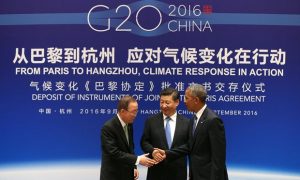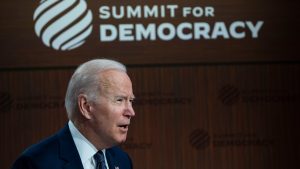 So, the Summit for Democracy has come and gone. Much commentary preceded, accompanied, and then followed this December 9th and 10th gathering. Truth be told there is a continuing stream of observations still. Various countries openly applauded the Summit though unsurprisingly those uninvited pushed back starkly including in the case of China holding a conference of many of the uninvited.
So, the Summit for Democracy has come and gone. Much commentary preceded, accompanied, and then followed this December 9th and 10th gathering. Truth be told there is a continuing stream of observations still. Various countries openly applauded the Summit though unsurprisingly those uninvited pushed back starkly including in the case of China holding a conference of many of the uninvited.
The lingering question for the global order and its key participants remain: what does this Summit announced early on by then presidential candidate Joesph Biden tell us about current US foreign policy; what is Biden’s strategic policy framework particularly in relationship to China and Russia – the two most evident rivals and authoritarian states; and what is the conclusion drawn by close US allies and partners? What has been gained; what has been hindered and harmed?
The lack of clarity over the purpose of this Summit is fairly evident. This Administration has left seemingly a variety of presumed goals ‘on the table’. It appears in fact as though the Administration identified at least three goals: an anti-corruption initiative; a protection of human right and more broadly a protection of democracy; and an autocracy versus democracy foreign policy approach, presumably part of a US democracy promotion goal.
On the democracy protection front the Administration offered a number of policy initiatives, including funding: As President Biden identified these efforts in his opening remarks:
Working with our Congress, we’re planning to commit as much as $224 million[$424 million] in the next year to shore up transparent and accountable governance, including supporting media freedom, fighting international corruption, standing with democratic reformers, promoting technology that advances democracy, and defining and defending what a fair election is.
This initiative was part of the US effort to encourage all participants to set goals and report back in a follow up on these commitments. As the President expressed it:
… and to make concrete commitments of how — how to strengthen our own democracies and push back on authoritarianism, fight corruption, promote and protect human rights of people everywhere. To act. To act. This summit is a kick-off of a year in action for all of our countries to follow through on our commitments and to report back next year on the progress we’ve made.
Still the clarity surrounding the Summit was never very evident to most. Indeed there appears to be no agreement on the nature of the declared initiatives . Observers have taken the above to be democratic promotion and not protection. This multiplicity of goals and their accompanying confusion have enabled experts, officials and commentators to choose their own goal from the menu of options offered by the Administration. Ben Judah at the New Atlanticist described one view of the Summit: Continue reading

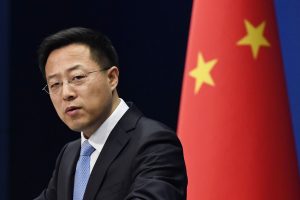
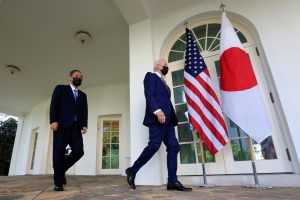
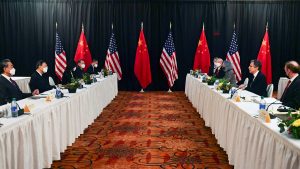

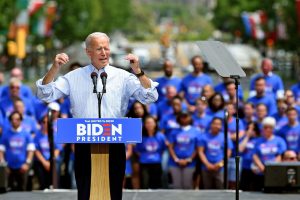
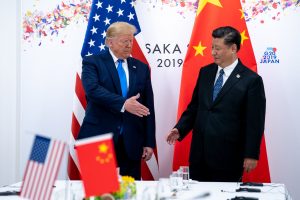

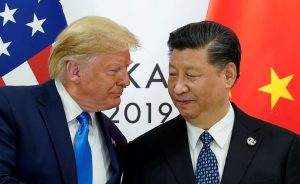 Errors have been made. And inconsistencies have occurred. But the current Trump policy toward China and its apparent encouragement of a renewal of ‘the Cold War’ – in this instance with China – is simply stupefying. And very likely dangerous. As the
Errors have been made. And inconsistencies have occurred. But the current Trump policy toward China and its apparent encouragement of a renewal of ‘the Cold War’ – in this instance with China – is simply stupefying. And very likely dangerous. As the